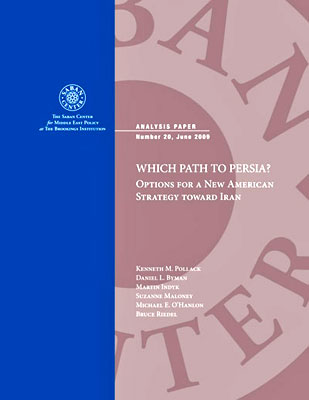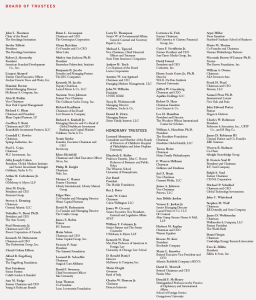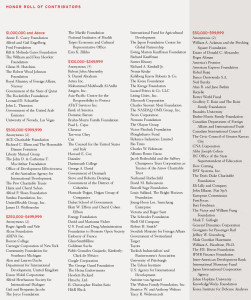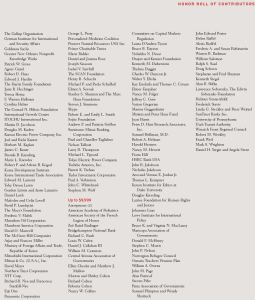|
Contributing Writer
October 12, 2011
Apparently, manufacturing such a "necessary pretext" to unilaterally bomb a
nation of 70 million is now also a part of U.S. foreign policy toward Iran.
U.S. Secretary of State Hillary Clinton would add,
Wrong.
Brookings would acknowledge in their report, however, that Iran sought
neither to confront the United States militarily, nor desired to provoke the
West into attacking the Islamic Republic, and even declared that Iran's
nuclear threat was more the deterrence it would present toward future U.S.
acts of aggression rather than hyped claims of proliferation or unilateral
first-strikes.
This included funding, arming, and training U.S. State Department-listed foreign terrorist organization (#28 on the list), Mujahedin-e Khalq (MEK.)
To date, covert support, weapons and funding have already made it into MEK's hands, and select members of the terrorist organization have even received specialized training on U.S. soil.
U.S. policy makers, after admitting MEK had
the blood of U.S. soldiers and civilians on its hands and that it has
"undeniably" conducted terrorist attacks, shockingly
wants to remove it from
the U.S. foreign terrorist organization list so that it can be worked with
more closely in toppling the Iranian government.
While Attorney General Eric Holder feigns outrage over Iran's "alleged" role in an "alleged" bombing plot, and its violation of "international norms," it turns out that the U.S. has been in reality, carrying out just such a campaign of armed terror on Iranian soil for years.
Adding insult to injury, Eric Holder is currently under investigation for his role in running thousands of military-grade weapons over the U.S.-Mexican border, where they were used by mass-murdering drug gangs to terrorize people across Mexico and even to kill U.S. agents.
One might wonder how many "international norms" that has violated.
More accurately, it is the result of an impotent U.S. intelligence community incapable of contriving anything more convincing in the face of an ever awakening American public, to bolster its morally destitute agenda.
The cartoonish nature of the plot and the arms' length even its proponents treat it with to maintain plausible deniability is indicative of a dangerously out of control ruling elite and an utterly incompetent, criminally insane government.
It might be noted that this is yet another example of a "terrorist plot" conjured up by federal agencies, hyped by politicians and the media, and leveraged to propel foreign and domestic policy the public and the world at large have already soundly rejected.
Two other notable examples include the Portland "Christmas Tree Bomber" used to terrorize the city into rejoining the FBI's Joint Terror Task Force, and the more recent "RC Plane Bomber" who was entrapped by FBI agents in order to keep the fraud that is the "War on Terror" alive.
One-Way Ticket to War Contributing Writer October 15, 2011 from ActivistPost Website
Kenneth Pollack helped literally co-author the blueprints for America's current policy toward Iran.
Titled, "Which Path to Persia?" and published in 2009 for the Fortune 500-funded Brookings Institution, much of what was covered in the report had already gone operational before it hit the press.
This included,
While pundits in the media and politicians behind their podiums talk about
"extending hands," "carrots and sticks," and other trite, and ultimately
contrived policies the U.S. is supposedly pursuing in regards to Iran, there
is in reality only Brookings' plan - and it leads only to war.
In it, Pollack, addressing a readership almost assuredly ignorant of his work on "Which Path to Persia?," claims that Iran appears to be irrationally wandering down a misguided path, waging what might be a "covert war" against America, highlighted by the contrived "Iran terror plot" targeting a Saudi ambassador.
Pollack, a former analyst for the CIA, seems to humor the recent allegations against Iran as plausible despite his own cautionary words regarding jumping to conclusions and despite the growing factual basis that exists to entirely dismiss the plot.
Additionally, Pollack's feigned astonishment over why Iran has been taking a tougher stance against the U.S. recently is a case study in duplicity, as he was one of the chief architects of the various provocations Washington has used to provoke Iran into such a stance.
Pollack's disingenuous editorial does however
lend us some insight into the current mindset of the "Which Path to Persia?"
co-authors, and ultimately into the mindset of those for whom the report was
prepared for and who are eager for war.
Brookings Institution 2009
To understand American policy toward Iran, one must understand who the authors are of such policy and what their motivations are.
The Brookings Institution itself was created by
and for the corporate-financier elite. It is a policy think-tank that
represents the collective interests of the big oil corporations, banks, and
military contractors that fund it. Quite obviously then, policy toward Iran,
or any nation for that matter, from within the halls of the Brookings
Institution will revolve around expanding the global financial, social,
political, and military hegemony of its corporate sponsors.
A Western-dominated banking system lording over 70 million people, telecommunications companies supplying services to this vast population, and the immense consumerist troughs that could be laid out before these people alone serves as a compelling incentive to attempt to domineer Iran.
War against such a nation would be a trillion
dollar endeavor, utterly bankrupting the American people, but enriching the
military-industrial complex beyond imagination.
The development of the modern nation-state is dependent on energy. By controlling access to energy, one controls the development of nations. While many analysts suggest the continental United States contains enough energy to meet America's needs for the foreseeable future, tapping into this supply and abandoning holdings overseas would catapult the developing world into direct competition with America on almost every front.
It would also allow nation-states worldwide to defend themselves against what has essentially been a free reign of financial piracy perpetrated by the,
Just some of Brookings Institution's corporate & institutional financial sponsors. For the full list (below images) please see Brookings' 2010 annual report, page 19. It should be noted that many of the managing directors, chairmen, and CEOs of these corporations also populate Brookings' Board of Directors producing a conflict of interests of monstrous proportions. Boycotting these corporations is an absolute necessity for anyone seriously interested in stopping the global corporate-financier elite's agenda.
With this in mind, it is quite clear why the corporate-financier interests that fund Brookings have thrown their support behind executing the recommendations made in "Which Path to Persia?" and continue marching the United States ever closer to war with Iran.
The report itself, most likely never intended to reach the American public on a large scale, and using language and length inaccessible to the average "bread and circus" crowds, fully acknowledges that Iran's leadership may be aggressive, but not reckless. The report also notes that Iran would use its nuclear weapons only as an absolute last resort, considering American and even Israeli nuclear deterrence capabilities.
Even weapons ending up in the hands of non-state actors is
considered highly unlikely by the report.
The fact that Iran's extensive chemical weapon
stockpile has yet to be disseminated into the hands of non-state actors,
along with the fact that these same elite units would in turn handle any
Iranian nuclear weapons, lends further evidence to this conclusion.
The report also acknowledges on multiple
occasions that Iran is not looking to provoke the West, and that the West,
or Israel would have to proactively work to provoke Iran into war instead.
This quote alone, not to mention the entire content of this report, compiled by some of America's most prolific policy makers and funded by America's largest corporations and banks, demonstratively executed over the past several years, makes everything that follows regarding the sanctions, covert military operations, U.S.-funded uprisings, U.S.-funded terrorism via the MEK (Mujahedin-e Khalq), and now these most recent, entirely contrived allegations regarding a supposed "bombing plot," all unjustified acts of war on America's behalf.
The reckless self-serving nature of this gambit
puts in danger the lives of hundreds of millions of people as these craven
megalomaniacs edge us ever closer to war with Iran.
Should readers know this, they would not only
dismiss him as a meddling, treasonous, warmonger, but dismiss the latest
allegations against Iran as yet another contrived attempt to stoke the fires
of war.
These are the ones that will ultimately profit
while both America and Iran suffers immeasurably.
Even just beginning to boycott them, cutting
back in our daily life and working toward the eventual goal of complete
local self-sufficiency will scale down both the reach and ambitions of these
corporations. It will also spur change within, as sagging profits motivate
individuals within these corporations to abandon those advocating
exploitative, parasitic agendas and business models. |







